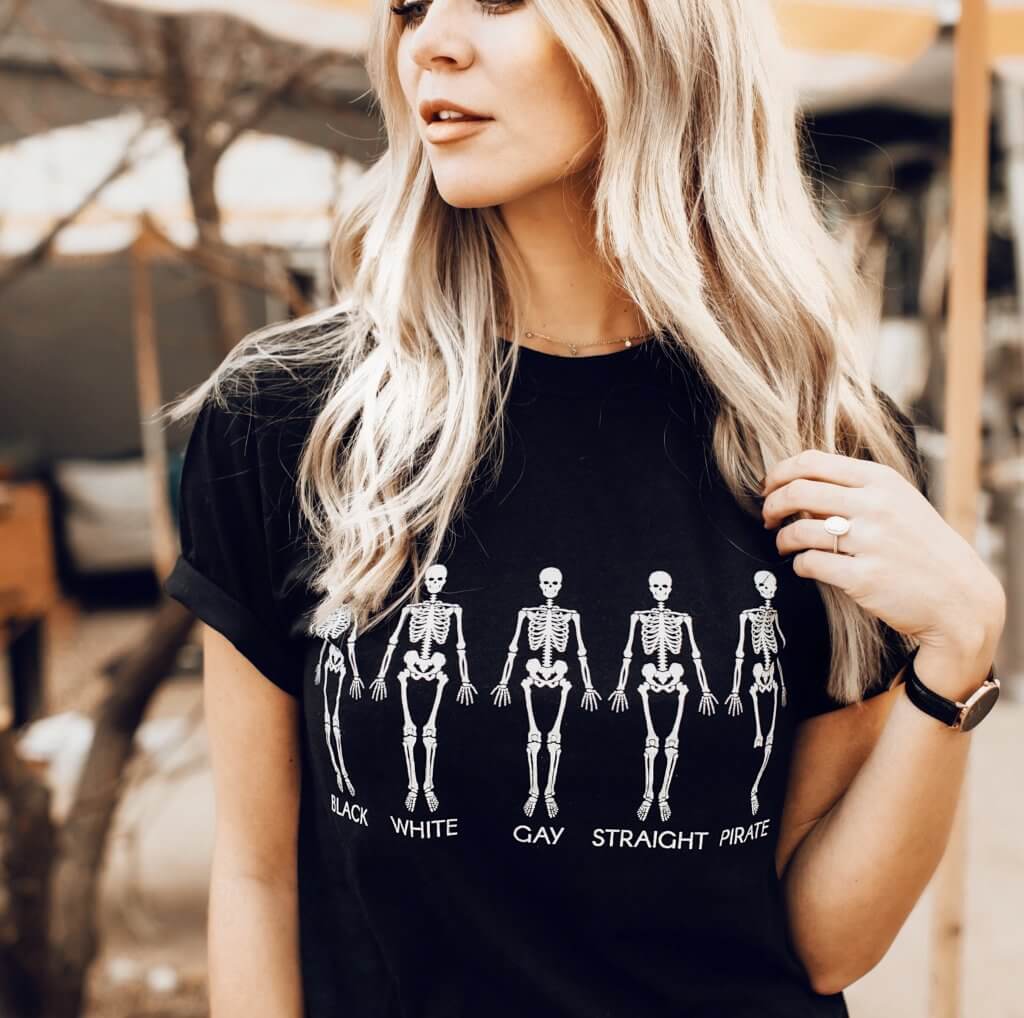PSA: You’re not a woke feminist unless you’re intersectional.
You’ve probably heard the term “intersectional feminism” a LOT more in the past year, after the 2017 Women’s March was chastised because none of its organizers were women of color. But intersectionality has been around much longer. It was popularized in 1989 by race theorist Kimberlé Crenshaw, but the actual concept dates back to black abolitionist Sojourner Truth in 1851.
WTF is intersectional feminism
So here’s the skinny. “Intersectional feminism” is the sociological theory centered around the ways in which women’s overlapping identities (sexual orientation, race, ethnicity, religion, class, mental and physical abilities, and more) impact the way women each experience oppression and discrimination differently.
If you’re a straight white cisgender* woman like I am, it’s natural to feel the discomfort and guilt that comes with recognizing the ways in which our privilege can overshadow other women in the feminist movement. No one wants to feel like the oppressor – but the bottom line is – the feminist movement needs to be more diverse and inclusive.
*cisgender means my gender identity is the same as my sex at birth
As a white woman, I’m disadvantaged by my gender – so it’s easy to focus on gender-specific issues like the gender wage gap. A black woman faces disadvantages from both her gender AND her race – so closing the gender wage gap isn’t enough. And what about women who are sex workers, fat, trans, gay, disabled, or poor? Pro-choice activism isn’t enough when you can’t afford basic health care.
What’s “white feminism?”
Basically, white feminism is “feminism” that focuses on the disadvantages of white, straight, cisgender, able-bodied women – without acknowledging the different interwoven layers of discrimination faced by marginalized subgroups of women.
I’m not saying this to make anyone feel bad. I’ve been accused of “white feminism” before – and it hurts, because let me tell you that is NOT what I’m about. But I understand where it comes from. I’m not perfect. It’s essential that we examine our own role and privileges.
A good friend of mine from business school, who also happens to be a black female, once told me that privilege is “freedom from consideration.” All of us are privileged in different ways. Privilege doesn’t make you a bad person. It doesn’t mean that you don’t have your own challenges. It doesn’t mean you grew up with a silver spoon in your mouth. It just means that you’re free from experiencing certain types of struggles because of who you are.
Why is intersectionality important to feminism?
As feminists, we fight for equality of all genders.
There are MANY different factors that affect how women experience discrimination – because forces of oppression (sexism, racism, etc.) intersect. “Women” isn’t a single category. Every woman has her own experiences, advantages, and disadvantages. But our oppressions are all interconnected, and we’re stronger fighting for equality together.
If women from all different intersectional groups don’t fight together, discrimination specific to less mainstream subsets of women and gender non-binary people will be ignored and unaddressed. A classic example is that when the 19th Amendment awarded “women” the right to vote in 1919 – that right was noninclusive to black and Native American women.
One of my favorite quotes is by civil rights activist Audre Lorde: “I am not free while any woman is unfree, even when her shackles are very different from my own.” As women, we all have different burdens to carry. But instead of saying “that’s not my burden to carry,” we can all help each other by sharing the load. We’re stronger as women when none of us are left behind!
4 Quick Tips For Intersectional Feminists
- Be a good ally for groups you’re not a part of. Check your privilege – and use your privilege to protect and defend others.
- When talking about feminist issues – ask the other question. Instead of asking how the issues relate to gender, also ask how it relates to race, sexuality, etc.
- Eliminate cissexist, transphobic, inter-sexist, and any other discriminatory language from your vocabulary. Stand up when others use this language.
- And the most important one… DON’T ONLY SPEAK OUT WHEN YOU HAVE SKIN IN THE GAME. Speak out for equality for ALL genders.
That means, as a feminist, I proclaim that I am:
- FAT POSITIVE
- ANTI-RACIST
- TRANS-INCLUSIVE
- PRO-CHOICE
- ANTI-ABLEISM
- AGAINST CLASSISM
All of these issues don’t exist separately from each other in some type of vacuum. They are interwoven – which is why women experience the oppression in many different ways and at different degrees of intensity. Everyone has a different “intersection” of various forms of discrimination. To quote my girl Audre Lorde again, “there is no such thing as a single-issue struggle because we do not live single-issue lives.”
Let’s support each other and help each other grow
Disrespecting sex workers, trans, intersex, fat, lower class, or disabled women ISN’T feminist. Pretending they don’t all face different forms of oppression them isn’t feminist either.
If you ask me – failure to celebrate intersectionality is one of the greatest dangers the new feminist movement faces.
If we only fight for people who look like ourselves, we’re fighting other women for one of the limited seats at the table. If we all fight together, we can demand a BIGGER TABLE.
What do YOU do to support ALL your sisters (not just your cis-ters)? Share your tips below!
Originally published at brainsoverblonde.com


